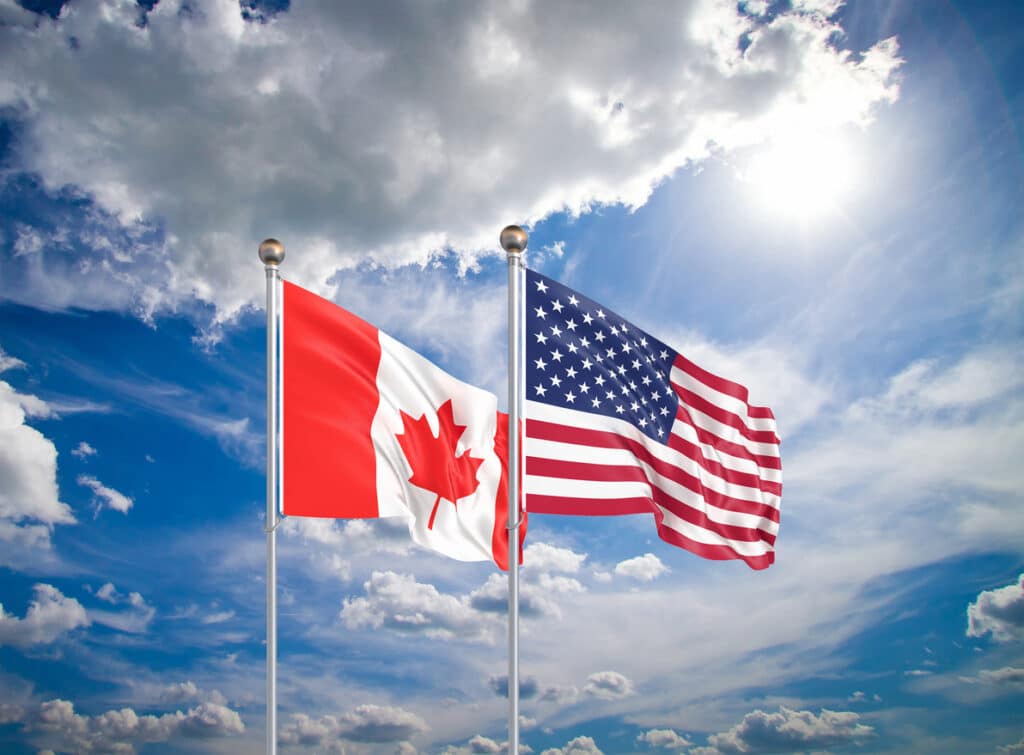You moved to Canada, but your IRA stayed behind—and now, what was once a straightforward retirement account has turned into a potential tax landmine. Get it wrong, and you could face surprise taxes, double reporting, or even lose the tax-deferred growth you’ve worked so hard for.
If you want to avoid costly mistakes and keep your U.S. nest egg safe while living in Canada, understanding how both countries see your IRA isn’t optional—it’s essential.
📋 Key Updates for 2025
- IRA contribution limits stay the same for 2025: $7,000 (under 50) and $8,000 (50+).
- Canada’s federal tax brackets have shifted upward, with the lowest bracket now covering income up to $57,375.
- New Canadian residents must file a one-time Roth IRA treaty election by April 30 of the year after their move to keep tax-free status.
Can you keep an IRA while living in Canada?
Cross the border, and your Individual Retirement Account (IRA) doesn’t magically disappear—but it does start acting a bit like a guest at a party who’s not quite sure of the house rules. Here’s what you need to know:
- No new contributions: Unless you have U.S.-source earned income, you can’t make new contributions to your IRA from Canada—even if you’re still a U.S. citizen or green card holder.
- Account stays put: Your Traditional or Roth IRA remains with your U.S. brokerage, growing (hopefully) tax-deferred or tax-free, depending on the type.
- Tax returns still required: You must keep filing a U.S. income tax return, and if you’re a Canadian resident, you’ll likely also file a Canadian tax return—because both the IRS and CRA love paperwork.
- No Canadian equivalents: You can’t roll your IRA directly into a Canadian RRSP or Tax-Free Savings Account (TFSA) without tax implications, and moving assets across borders is almost never a “one-time, tax-free” event.
- Investments and planning: Mutual funds, pre-tax dollars, rollovers, and financial planning now come with cross-border tax and reporting rules—so pay close attention to both U.S. and Canadian tax laws before making changes.
Bottom line: You can keep your IRA as a non-resident or expat in Canada, but successful tax planning means understanding the fine print—especially when it comes to contributions, reporting, and cross-border tax implications.
Canadian equivalents to U.S. retirement accounts
If you’re settling in Canada and missing your IRA, you’ll quickly meet its Canadian cousins: the Registered Retirement Savings Plan (RRSP) and the Tax-Free Savings Account (TFSA).
RRSP
Think of the RRSP as Canada’s answer to the Traditional IRA—your contributions are tax-deductible, and the investments inside grow tax-deferred until you make withdrawals. But the way you earn “contribution room” is different: RRSP room is based on your Canadian income, not a flat dollar amount like U.S. IRA limits.
TFSA
The TFSA looks like a Roth IRA at first glance: grow your investments, withdraw tax-free, and live happily ever after—in Canada, that is. For U.S. tax purposes, the TFSA is not tax-free and can actually cause reporting headaches for U.S. citizens.
Key differences
- RRSP and IRA rules are governed by different tax rates, contribution limits, and reporting requirements on each side of the border.
- While RRSPs and TFSAs are “registered” Canadian retirement arrangements, the IRS doesn’t always recognize their tax perks.
💡 Pro Tip:
RRSPs are your closest match to a U.S. Traditional IRA, but don’t assume a TFSA is a perfect Roth substitute—especially when the IRS gets involved. Smart cross-border retirement planning means understanding the unique rules (and traps) in both systems.
Taxation of IRA accounts under Canadian law
Here’s where things get thorny: The Canada Revenue Agency (CRA) doesn’t just take the IRS’s word that your IRA is tax-deferred. Move to Canada, and—unless you make the right moves—your IRA income could suddenly become taxable, even if you haven’t touched it yet.
- Treaty elections: Thanks to the Canada–U.S. tax treaty, you can preserve the tax-deferred status of your IRA in Canada—but only if you file the proper treaty election and keep your paperwork on point. Skip this step, and the CRA might start taxing your IRA’s growth every year.
- Roth IRAs: That Roth IRA “tax-free forever” promise? Not so fast. Under Canadian law, the Roth’s special U.S. status isn’t guaranteed. Without a treaty election, Canada may treat Roth earnings—and sometimes even contributions—as taxable income.
💡 Pro Tip:
If you have IRA contributions or account growth and now call Canada home, don’t leave your tax treatment to chance. The right treaty election and meticulous reporting can save you a world of tax pain.
How IRA withdrawals are taxed in Canada
Pulling funds from your Traditional IRA after moving to Canada? Here’s what you need to know—before the tax bills start arriving on both sides of the border:
- Fully taxable in Canada: Every withdrawal from your Traditional IRA counts as regular income and must be reported on your Canadian tax return, even if U.S. taxes have already been withheld.
- Double penalties possible: Lump sum or early withdrawals can trigger extra penalties and push you into a higher tax bracket in both countries if you don’t coordinate carefully.
- Reporting is required: You must report IRA withdrawals on your Canadian return—Canada-U.S. treaty relief exists, but only if you file correctly.
💡 Pro Tip:
If you’re planning a big IRA withdrawal, consider spreading it out over several tax years to avoid landing in a higher bracket and to keep both CRA and IRS taxes as low as possible.
Managing Roth IRAs as a resident of Canada
Thinking of keeping your Roth IRA after moving to Canada? Here’s what to watch out for:
- No new contributions: Once you’re a Canadian resident, you can’t add funds to your Roth IRA unless you still have U.S.-source earned income.
- Canadian taxation on growth: Roth IRA earnings aren’t automatically tax-free in Canada. Without a treaty election, any growth can be taxed by the CRA—even if withdrawals are tax-free in the U.S.
- Declare early, save later: To preserve tax-deferred growth, you need to declare the Roth IRA on your very first Canadian tax return and file the appropriate treaty election before any income is earned.
💡 Pro Tip:
Move fast—if you don’t file the treaty election in your first year, you could lose out on tax-free growth for good.
Reporting requirements in both countries
Living cross-border with an IRA or Roth IRA means you’re playing by two sets of tax rules—and both the IRS and CRA expect you to keep them in the loop. Missing a reporting step, even by accident, can turn your retirement savings into a tax nightmare or trigger penalties you never saw coming.
- Declare in Canada: Report your IRA and Roth IRA accounts on your Canadian income tax return, and include them on Form T1135 (Foreign Income Verification Statement) if your total foreign assets exceed CAD $100,000.
- File in the U.S.: As a U.S. citizen or resident, you’re required to file a U.S. income tax return every year, reporting all IRA and Roth IRA activity—regardless of your Canadian residency.
- Consequences for missing out: Failing to properly disclose your IRA accounts can mean steep penalties, loss of tax-deferred treatment, and even extra withholding taxes on both sides of the border.
- Accuracy matters: Careful, correct reporting is the cornerstone of compliant cross-border wealth management for anyone with U.S. retirement accounts abroad.
💡 Pro Tip:
Stay organized—track every IRA and Roth IRA account and keep copies of every reporting form. In a cross-border world, paperwork really is power.
Can you transfer a U.S. IRA to a Canadian RRSP?
Thinking about moving your U.S. retirement funds north? It’s trickier than it sounds. There’s no legal way to roll over a U.S. IRA directly into a Canadian RRSP—no matter what you’ve heard. Here’s what actually happens:
- No direct transfer: IRS rules and Canadian law don’t allow a straightforward IRA-to-RRSP contribution.
- Withdraw and re-contribute: Your only option is to withdraw from your IRA, pay U.S. taxes (and maybe capital gains), then contribute to your RRSP—often with a hefty tax bill in the process.
- Mitigation strategies: If you must take a lump sum withdrawal, careful timing and use of foreign tax credits may help soften the tax blow—but there’s no way to make it tax-free.
- Professional help is a must: The risks and penalties are real, so always consult a cross-border financial advisor before moving any retirement money between countries.
💡 Pro Tip:
Sometimes, leaving your IRA in the U.S. and managing it from Canada is far more tax-efficient than triggering a costly withdrawal and transfer.
How distributions and RMDs are treated across borders
Getting close to retirement? Required Minimum Distributions (RMDs) from your IRA add another layer of cross-border complexity—timing and reporting are key.
- RMDs start at 73: U.S. law requires you to begin RMDs from your Traditional IRA at age 73, whether you’re a U.S. resident or living abroad in Canada.
- Taxable income in both countries: Both the IRS and CRA treat RMDs and other IRA distributions as taxable income, so when and how you take withdrawals can make a big difference in your overall tax bill.
- No RRIF conversion: Unlike Canadian RRSPs, your IRA doesn’t automatically convert to a RRIF—but you may need to report IRA distributions similarly on your Canadian return as part of retirement planning.
- Holistic wealth strategy: The most effective approach is to consider all your retirement sources—U.S. pensions, Social Security, Canadian RRSP/RRIF balances—so you can optimize withdrawals and minimize taxes.
💡 Pro Tip:
Plan your RMD withdrawals alongside your other retirement income and make use of treaty elections where possible—good coordination can mean more income in your pocket and less lost to taxes.
Common mistakes U.S. expats make with IRAs in Canada
Managing an IRA in Canada is full of potential pitfalls. Here are the most frequent missteps:
- Assuming Roth IRA earnings are tax-free in Canada: The CRA doesn’t automatically honor Roth’s U.S. tax-free status without the right treaty election.
- Missing the treaty election window: If you don’t make your treaty election in your first Canadian tax year, you could lose out on key tax benefits.
- Failing to report accounts: Skipping IRA and Roth IRA reporting on either your Canadian or U.S. tax returns can lead to penalties and loss of tax-deferred treatment.
- Taking early withdrawals without crunching the numbers: Early IRA withdrawals can trigger higher withholding taxes and push you into a higher tax bracket in both countries.
- Trusting advisors who aren’t cross-border specialists: Standard financial or pension plan advice doesn’t always cover the quirks of U.S. retirement accounts in Canada.
Coordinating cross-border retirement strategies
Managing your IRA in Canada is absolutely possible—but it’s a careful dance between U.S. tax rules, Canadian income tax, and smart timing. The real win comes from treating your IRA as part of a bigger, long-term wealth management plan—not just a quick transfer or one-time decision.
Align your withdrawals, your choice of financial institutions, and your advisor’s guidance every step of the way to sidestep double taxation and keep your nest egg growing.
Ready to take the guesswork out of cross-border retirement planning?
Bright!Tax specializes in helping Americans abroad navigate the details, minimize tax, and keep more of what you’ve worked so hard to save. Get in touch and let’s make your next move your smartest yet.
Frequently Asked Questions
-
Can I keep my IRA if I move to Canada?
Yes—you can keep your U.S. Individual Retirement Account (IRA) while living in Canada, but you generally can’t make new contributions unless you have U.S.-source earned income.
-
Will my IRA or Roth IRA still grow tax-deferred in Canada?
Not automatically. To preserve tax-deferred or tax-free growth, you must make a treaty election on your Canadian tax return in your first year of residency; otherwise, the CRA may tax the account’s earnings annually.
-
Can I roll my U.S. IRA into a Canadian RRSP or TFSA?
No—there’s no direct way to transfer a U.S. IRA to a Canadian RRSP or TFSA. Withdrawing from your IRA to contribute to a Canadian account usually triggers U.S. taxes and possibly Canadian taxes, so it’s rarely a tax-free process.
-
How are IRA withdrawals taxed if I live in Canada?
Withdrawals from a Traditional IRA are fully taxable as income in Canada and may also be subject to U.S. withholding tax. Smart timing and use of the U.S.–Canada tax treaty can help reduce double taxation.
-
Are Roth IRA earnings tax-free in Canada?
Not by default. Roth IRA earnings are only tax-free in Canada if you make the appropriate treaty election; otherwise, the CRA may treat earnings and sometimes contributions as taxable.
-
What are my reporting obligations?
You must declare your IRA and Roth IRA on your Canadian tax return (and Form T1135 if applicable), and you’re still required to file a U.S. tax return each year, reporting all IRA-related activity.
-
What’s the biggest mistake U.S. expats make with IRAs in Canada?
Missing the treaty election window or failing to report their IRA in both countries—both can result in unexpected taxes and penalties.
-
Do I need a cross-border tax advisor?
Highly recommended. Managing an IRA in Canada is complex, and working with an expert in U.S.-Canada tax rules is the best way to avoid costly errors.

 Connect on LinkedIn
Connect on LinkedIn

